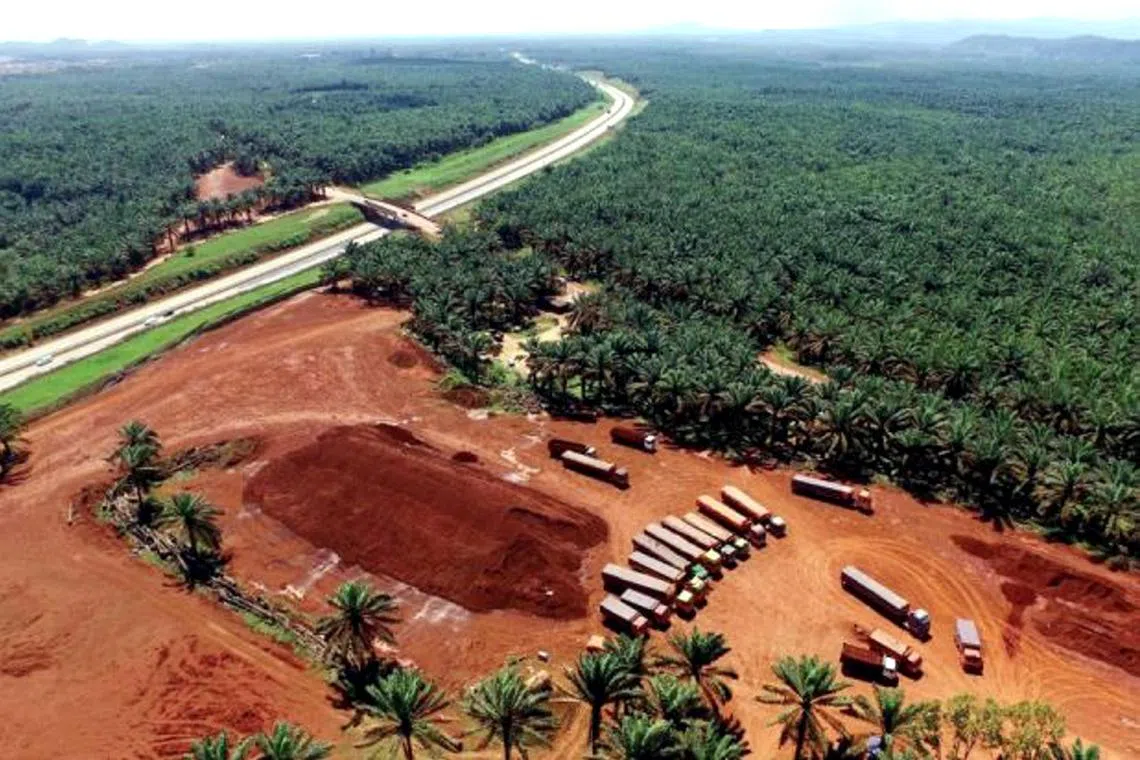Malaysia set to gain from Indonesia’s ban on bauxite exports
Sign up now: Get insights on the biggest stories in Malaysia

Malaysia had imposed a cap on bauxite exports at 600,000 tonnes monthly since 2019, with most of its exports in recent years going to China.
PHOTO: THE STAR/ASIA NEWS NETWORK
KUALA LUMPUR - Malaysia, once among the world’s top 10 biggest bauxite suppliers to China, is set to emerge as a beneficiary of Indonesia’s latest ban on its export.
According to Indonesia’s Customs data, China imported 17.8 million tonnes in 2021 from the country, accounting for about 15 per cent of its total imports.
China, the world’s largest consumer, imported 107.42 million tonnes of bauxite in 2021, according to data from Statista.
“In this situation, if a country (Indonesia) has imposed a ban on the export of bauxite, then the global demand will shift to any other country that can supply those resources,” Malaysian Minister of Natural Resources, Environment and Climate Change Nik Nazmi told The Straits Times.
“In this case, demand for bauxite from Malaysia will be high, especially from China,” Mr Nik Nazmi said.
Even though Malaysia has imposed a cap on bauxite exports at 600,000 tonnes monthly
Indonesia, the world’s sixth-largest producer of bauxite, a primary source of aluminium, has taken the protectionist step to stop exports from June,
It first halted exports in 2014, paving the way for Malaysia to emerge as a top producer on the back of soaring China demand.
But in 2019, Malaysia’s ranking dropped to 18 among the world’s largest 20 producers, after a three-year mining ban was imposed in 2016 due to unregulated mining in the eastern state of Pahang.
Bauxite mining became a national controversy and was criticised by environmentalists after run-offs from unsecured stockpiles contaminated water sources,
Malaysia’s production of bauxite, which stood at 27.7 million tonnes in 2015, tumbled by more than 96 per cent to just 900,561 tonnes in 2019, according to the mineral and geoscience department.
Subsequently, Malaysia’s exports also shrank by about 74 per cent to about 912,118 tonnes in 2019 from 3.5 million tonnes in 2015.
While the mining ban was lifted in 2019, new stringent regulations such as reducing allowable areas for mining activities in Pahang between the June 2020 and May 2021 period as well as requiring environmental impact studies caused Malaysia’s exports to dwindle further to just 227,691 tonnes in 2021.
China’s demand has been growing at a fast pace
China refines bauxite to obtain alumina, which is smelted to produce aluminium. Smelting is a process of extracting metal from its ore.
Agricultural-economist Julian Conway McGill, head of South-east Asia for commodities consultancy firm LMC International, anticipates Malaysian exports of bauxite to rise as China’s decision to reopen its economy will help to stimulate demand for aluminium smelting.
“Supply disruption from the latest ban of exports could cause bauxite prices to rise in the short run. This would encourage miners in Malaysia to produce more bauxite, which would mitigate the higher cost of production,” he said.
Analysts expect Indonesia’s ban to drive up aluminium prices in the short term.
The three-month aluminium futures contract on the London Metal Exchange stood at US$2,378 a tonne at close last Friday.
In the near term, RHB Research expects London Metal Exchange aluminium prices to trade within US$2,300-US$2,500 a tonne, with prices expected to be on the upside in 2023.
“This will be underpinned by low aluminium inventory levels globally, a pick-up in aluminium adoption from the renewable energy and electric vehicle sectors and the potential relaxation of Covid-19 containment measures in China,“ the research house had said on Dec 13.



